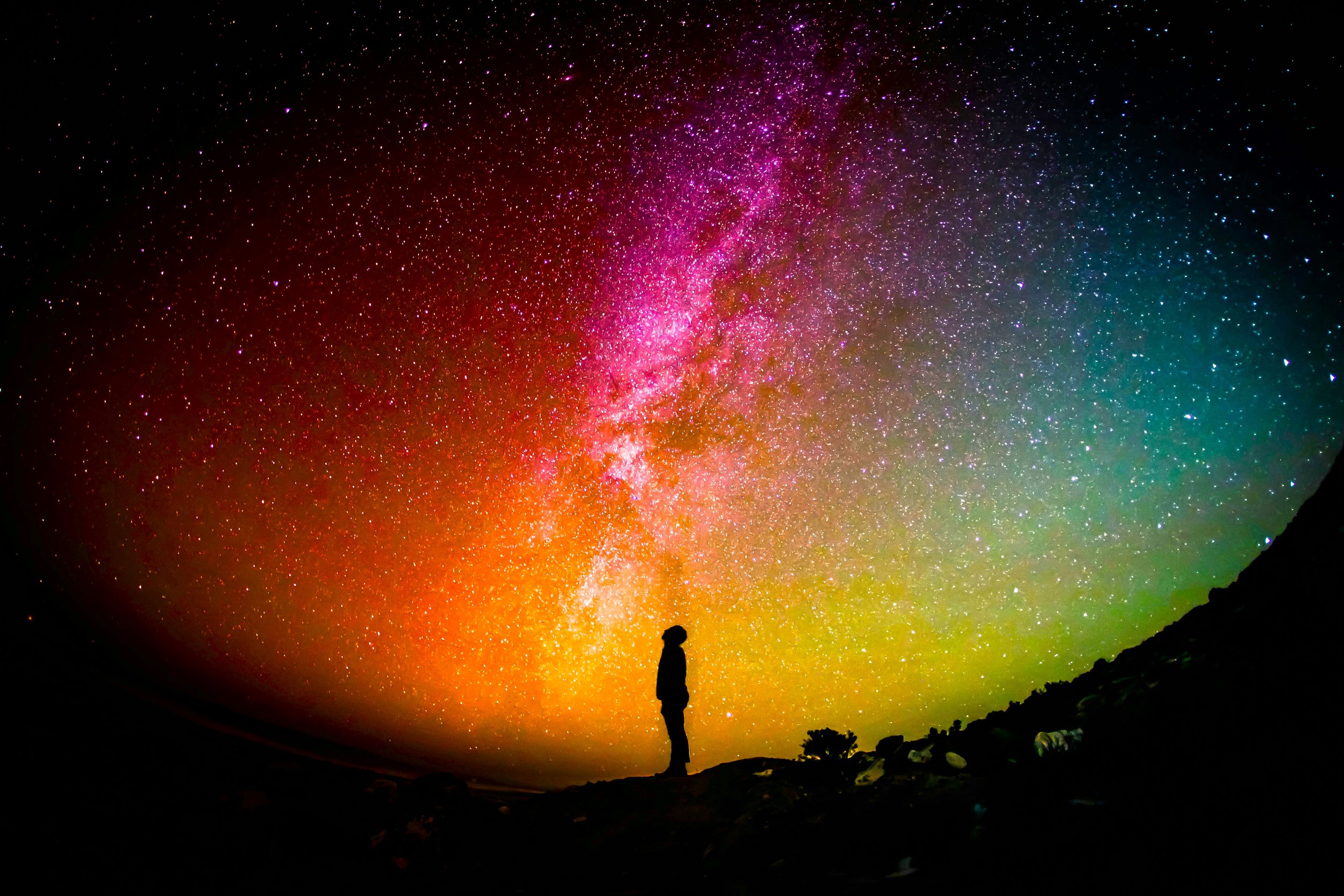It all began, begins, with words
by Emma Wilkins
Every person who reads this, whether passionately religious or passionately anti-religious, will have beliefs about how our world came to be—about what is, and isn’t, possible. To some extent, those beliefs will have been shaped by words. We use words to gain and share understanding, to make sentences; to make sense. We use different genres, too—from scientific theories, to historical narratives, to poems and allegories. Some are concerned with what and when, some with how, some with why, some with who. The following words focus on two texts that, though written by different authors, in different times and different genres, were cut from the same cloth.
The Beginning
In the beginning—an ancient writer writes, evoking a poem written long before—was the Word. And so, with old words, and with new, his story starts.
But first: long before this manuscript, that poem. That poem—the start of what becomes a book, the Book of Genesis—that speaks of how from nothing all things came, and came through words—that poem.
There was no earth; there were no stars; there was no life, the poem declares. There was a speaker who then spoke. Whose words evoked the heavens and the earth.
The poem describes a place that’s not a place; that’s formless, lifeless, dark. A God, whose Spirit hovers, and whose commands create. A God who speaks.
In the beginning God created the heavens and the earth—with words.
Let there be, let there be, let there be.
The world is spoken into being. The creatures of the sea, the land, the sky. Surging oceans, dancing clouds, soil that teems with life and warmth, air that’s filled with colour, movement, noise.
Then comes a creature of another kind—the image-bearing kind, and a command to speak, to name.
In the beginning, there were words, there was speaking and creating, there was naming, and then...rest.
The world was authored, written, ordered—line by line, “day” by sweeping day—then done! A finished manuscript, a Work of Art, complete. And it was good.
Many words later—words thought, words spoken, words remembered, words forgotten; words sacred, words profane; words broken, words kept—the ancient poem’s evoked once more.
In the beginning—another writes, in another time—was the Word, and the Word was with God, and the Word was God.
It’s the start of a biography that starts before the world.
And according to its writer—who some now call Saint John—the Word was, is, the Son of God and God himself. Human and divine, vulnerable, and invincible. Not either/or, both/and.
Through Him all things were made; without Him, nothing was made that has been made.
In Him was life, and that life was the light of all mankind.
In the beginning was the Radiance of God’s glory; the Exact Representation of God’s Being. In the beginning was the Kindness and the Love of God. These names, and many more, all came with time; all came after the Word entered the world—as one of us.
The Word became flesh and made his dwelling among us—an audacious, a bizarre, fantastic claim. He “put on flesh,” received an ordinary name, lived in an ordinary town. He breathed. He ate. He walked. He slept. He learned to read.
And He loved. He hurt, He healed, He wept, He feared, He hoped; He spoke in parables, used metaphors. He wasn’t handsome or attractive—had no beauty, majesty—but He could speak. And people came, in time crowds flocked, to hear His voice. The leaders of the day could not abide His popularity, His confidence, His claims, His wit.
In the end, He was despised, rejected, mocked. And so, the story goes, the one whose word sustains all things, was killed. Also, the story goes, He rose. Said He would return—did not say when.
At the end of John’s biography: the claim He did much more than can be written down or read. If it could, the world itself would not have space, could not contain, all of the books.
I picture them, spilling into space; drifting through the darkness; flaming when they float too near a star. So many books.
*****
I wonder whether fiction writers, writers who create, who colour, fill—who birth characters and lives—who craft beginnings, middles, ends—who use words to make us see and feel and think—often wonder at this impulse, where it came from, what it means.
In the beginning was the Word, and the Word was with God, and the Word was God.
Such a fantastic claim. And yet we live in a fantastic world; a world that speaks in every sense, that speaks to every sense, of wonder, order, and complexity. Its existence is implausible, absurd—and ours is, too.
We can’t begin, or can at best only begin to understand, this place—its origins, and ours. And we begin, time and time again, with words.
BIO: Emma Wilkins is a Tasmanian journalist whose freelance work has been featured in newspapers, magazines and journals in Australia and beyond. You can find her at: https://emmahwilkins.com/

